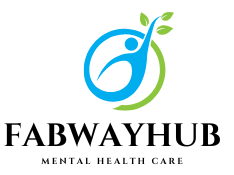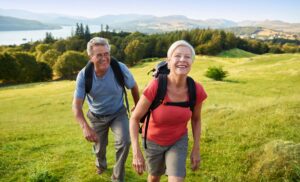Aging is a natural process, and while it’s inevitable, it doesn’t have to mean a decline in health or vitality. In fact, with the right approach, you can age gracefully while staying active, sharp, and vibrant at any stage of life. Whether you’re in your 40s, 60s, or beyond, there are various ways to support your physical and mental well-being and enjoy a fulfilling life as you age. In this article, we’ll explore key strategies and tips to help you maintain your health and vitality as you grow older.
The Importance of Staying Active
Staying physically active is one of the most crucial factors for healthy aging. Regular exercise can help you maintain muscle mass, improve flexibility, boost cardiovascular health, and enhance mood. It can also lower the risk of chronic conditions like diabetes, heart disease, and osteoporosis. Let’s explore the types of exercises that can help you stay fit as you age.
Strength Training
As you age, muscle mass naturally declines, a process known as sarcopenia. Strength training exercises, such as weight lifting or resistance band workouts, can counteract this decline. These exercises build muscle, which in turn boosts metabolism, strengthens bones, and enhances overall endurance. Aim for at least two sessions of strength training per week to maintain muscle health.
Cardiovascular Exercise
Aerobic exercises, such as walking, jogging, swimming, or cycling, are excellent for heart health. They also improve lung capacity and help you maintain a healthy weight. The Centers for Disease Control and Prevention (CDC) recommends at least 150 minutes of moderate-intensity aerobic activity per week for adults aged 65 and older.
Flexibility and Balance Training
As you age, flexibility and balance become increasingly important for preventing falls and maintaining independence. Yoga, Pilates, and stretching exercises can improve flexibility and balance, reducing the risk of injury. Try incorporating these exercises into your routine at least twice a week.
Mental Sharpness: Keep Your Brain Active
Aging doesn’t only affect the body – it impacts the brain as well. Cognitive decline is a natural part of the aging process, but there are ways to keep your mind sharp and prevent mental deterioration. Engaging in mentally stimulating activities can help maintain cognitive function and improve brain health.
Brain Games and Puzzles
Challenge your brain with games like crossword puzzles, Sudoku, and chess. These activities engage different parts of the brain, helping to enhance memory, problem-solving skills, and overall cognitive function. Apps and websites that offer brain training exercises can also be a fun way to keep your mind sharp.
Learning New Skills
Never stop learning! Taking up new hobbies or learning a new language can stimulate brain activity and promote neural growth. Whether it’s painting, playing an instrument, or even taking an online course, constantly learning helps keep your brain engaged and active.
Social Engagement
Maintaining strong social connections is essential for mental well-being. Engaging in conversations, attending social gatherings, or participating in community activities helps reduce feelings of isolation and stimulates brain activity. Studies have shown that socializing can improve memory, cognitive function, and emotional health.
Healthy Nutrition for Longevity
What you eat plays a significant role in how you age. A well-balanced diet that is rich in nutrients can help slow the aging process, improve your energy levels, and enhance overall health. Let’s look at the types of foods that are particularly beneficial for healthy aging.
Antioxidant-Rich Foods
Antioxidants help neutralize free radicals, which are molecules that can cause oxidative damage to cells and tissues in the body. Foods like berries, leafy greens, and nuts are packed with antioxidants, which can help protect your body against aging-related diseases and promote healthy skin.
Omega-3 Fatty Acids
Omega-3 fatty acids are essential for brain health, reducing inflammation, and promoting heart health. These healthy fats are found in fatty fish like salmon, flaxseeds, chia seeds, and walnuts. Aim to include these foods in your diet to support cognitive function and reduce the risk of chronic conditions.
Fiber-Rich Foods
As you age, digestive health becomes more important. Fiber-rich foods such as whole grains, legumes, fruits, and vegetables help maintain regular bowel movements, prevent constipation, and support overall gut health. Additionally, a high-fiber diet has been linked to a lower risk of heart disease and stroke.
Hydration
Dehydration becomes a common issue as we age, as our bodies’ ability to conserve water decreases. Drinking enough water is essential for maintaining energy levels, supporting kidney function, and keeping your skin healthy. Aim for at least 8 glasses of water a day, and more if you’re physically active.
The Power of Rest and Recovery
While staying active is essential for healthy aging, so is proper rest and recovery. Sleep plays a crucial role in physical and mental health, helping to repair tissues, strengthen the immune system, and improve cognitive function.
Prioritize Sleep
Getting enough restorative sleep is vital as you age. Sleep helps the body repair itself and supports brain function. As adults age, they tend to sleep more lightly, but it’s important to maintain a consistent sleep schedule, avoid caffeine late in the day, and create a restful environment.
Manage Stress
Chronic stress can have a negative impact on both your mental and physical health. Incorporating relaxation techniques such as meditation, deep breathing, and mindfulness into your daily routine can help reduce stress and improve overall well-being. Regular relaxation practices are linked to better sleep, lower blood pressure, and improved immune function.
Visual Data: Benefits of Physical Activity for Older Adults
To better illustrate the benefits of physical activity in older adults, here’s a chart comparing the health benefits of regular exercise:
| Benefit | Without Exercise | With Regular Exercise |
|---|---|---|
| Heart Health | Increased risk of cardiovascular diseases | Improved circulation, lower blood pressure |
| Muscle Strength | Muscle atrophy, reduced strength | Increased muscle mass and endurance |
| Bone Health | Increased risk of osteoporosis | Stronger bones, reduced fracture risk |
| Mental Health | Higher risk of depression, anxiety | Improved mood, reduced stress levels |
| Balance & Coordination | Increased risk of falls | Improved balance, reduced fall risk |
Frequently Asked Questions (FAQs)
1. How can I prevent cognitive decline as I age?
Engage in mentally stimulating activities, stay socially active, and maintain a healthy lifestyle with regular exercise and a balanced diet. Keeping your brain challenged and your body active can help reduce the risk of cognitive decline.
2. What are the best exercises for older adults?
The best exercises for older adults include strength training, walking, swimming, and balance exercises. It’s essential to focus on exercises that improve cardiovascular health, muscle strength, and flexibility.
3. How much water should I drink as I age?
Aim to drink at least 8 cups of water a day, or more if you’re physically active. Staying hydrated helps maintain energy levels, supports digestion, and promotes healthy skin.
4. Is it normal to have trouble sleeping as I age?
It’s common for older adults to experience lighter sleep, but it’s important to maintain a consistent sleep schedule, avoid caffeine in the evening, and create a comfortable sleep environment to improve the quality of your rest.
Conclusion
Aging is inevitable, but it doesn’t have to be a time of decline. By staying active, mentally engaged, and focused on maintaining a healthy lifestyle, you can age gracefully and continue to enjoy a vibrant life at any age. Regular exercise, a balanced diet, mental stimulation, and adequate rest are key components to achieving healthy aging. With these strategies in place, you can look forward to a future full of energy, vitality, and well-being.
References:
-
Centers for Disease Control and Prevention (CDC) – Physical Activity Guidelines
-
National Institute on Aging – Healthy Aging




